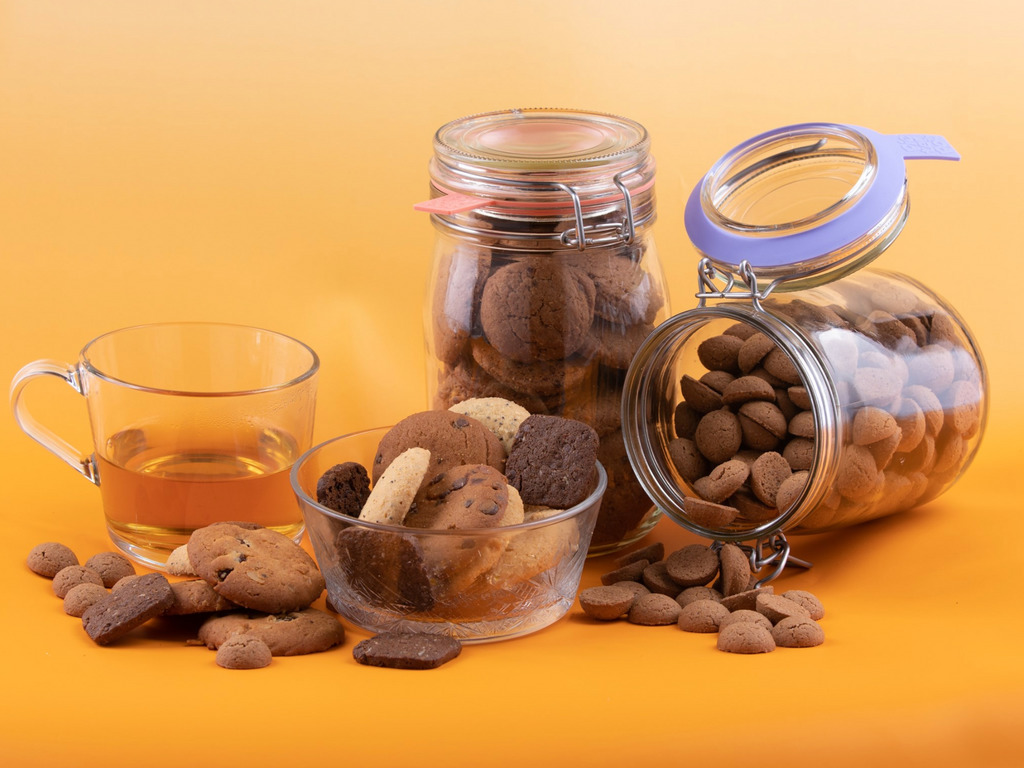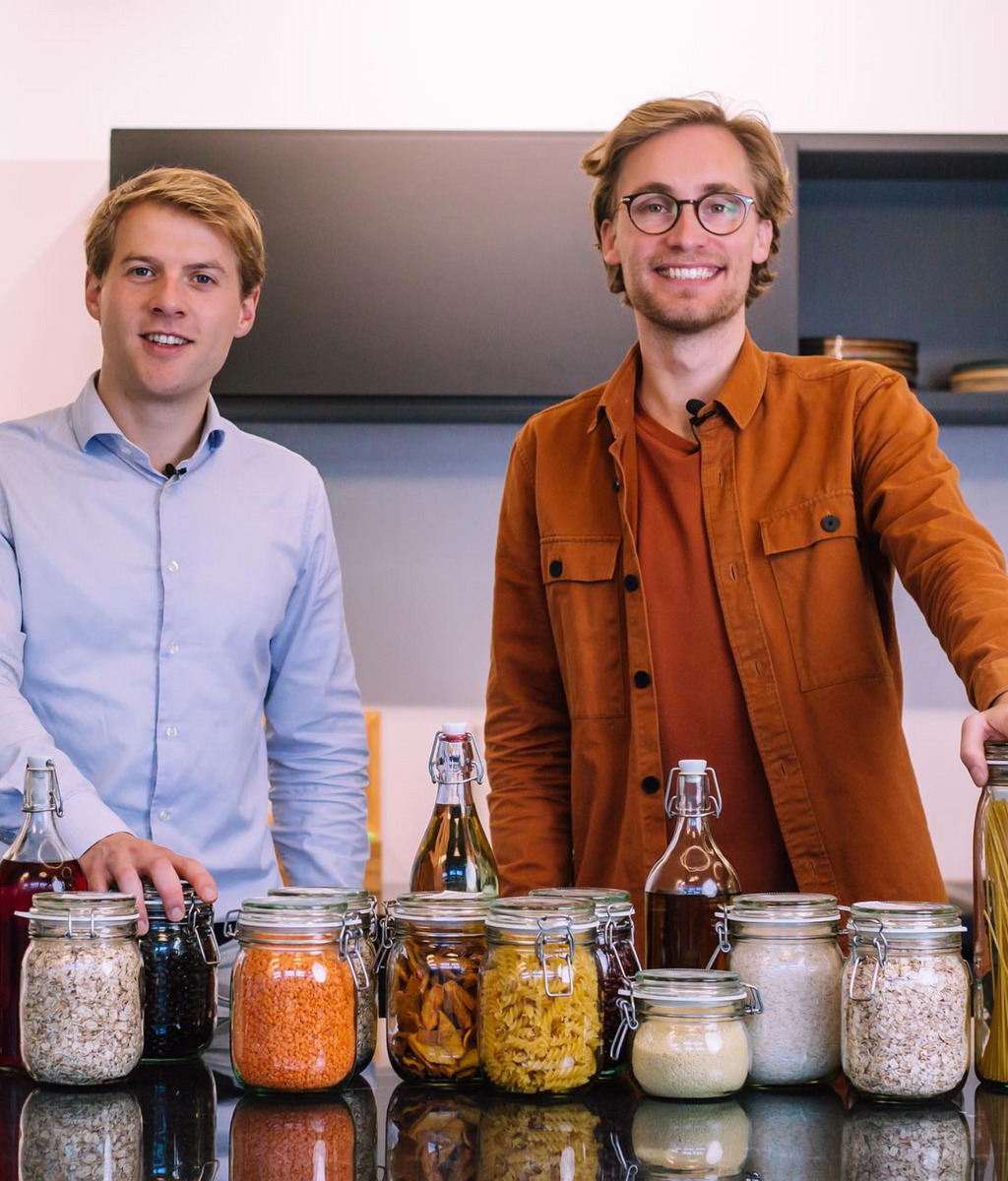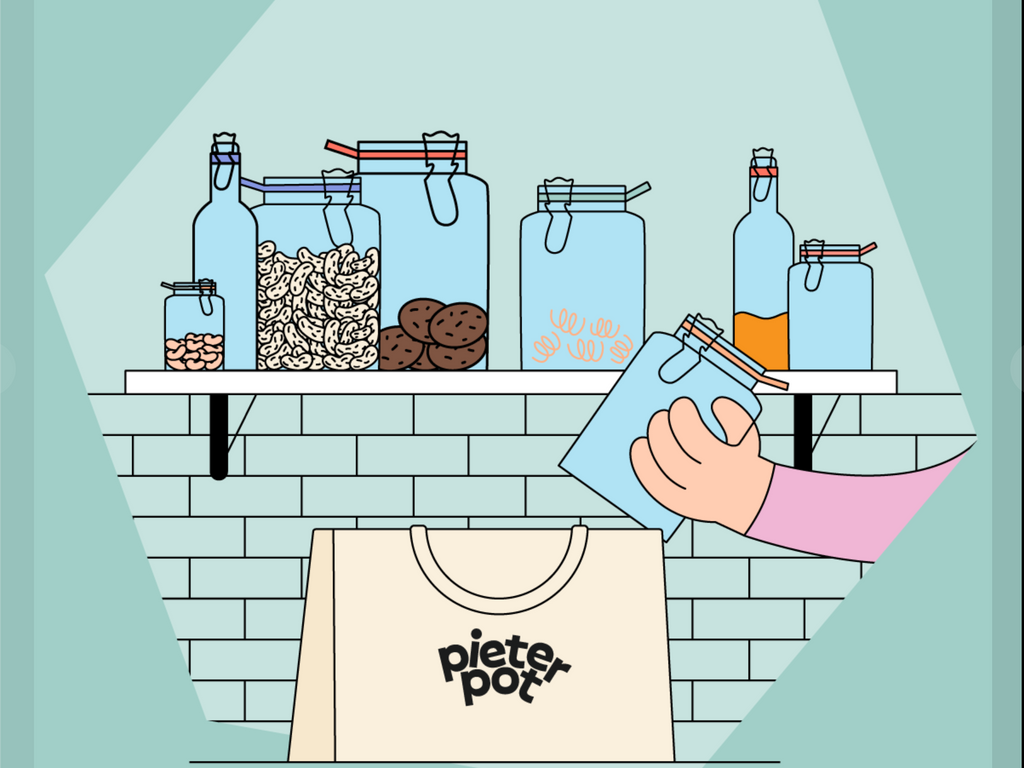4 Mins Read
Dutch startup Pieter Pot, a circular supermarket in the Netherlands, is pioneering a new way to shop for groceries by allowing its consumers to purchase groceries without producing any waste through its deposits and delivery system by packaging all its items in glass pots.
Based in Rotterdam, Pieter Pot was founded in 2019 and launched in May 2020 by Jouri Schoemaker and Martijn Bijmolt. The zero-waste supermarket helps consumers reduce waste while buying their groceries through a convenient deposit and delivery system.
The company initially raised EUR€300,000 (US$364,278) and received a EUR€100,000 (US$121,426) government subsidy to support its work. Late last year, in November 2020, Pieter Pot received EUR€2.7 million (approx US$3.2 million) from three sustainability-focused investment funds: Shift Invest, Future Food Fund and InnovationQuarter, enabling the supermarket to scale up operations.
Even if packaging gets recycled, it still costs a lot of energy. You can compare it to a bottle or a can of beer: bottles are the more sustainable option after they have been reused around ten times
Jouri Schoemaker, Co-founder of Pieter Pot
Compared to regular supermarkets that offer over 30,000 items, Pieter Pot offers about 250 non-perishable and long-lasting products, such as rice, lentils, cookies, and ketchup, and the number of items is a conscious effort by the founders to limit choices per category resulting in a larger variety of quality products. Aside from this, the founders explain that by shortening the supply chain and by directly delivering to the consumer, they’re able to sell their products at an affordable price.

How does the zero-waste policy work?
In November last year, Schoemaker told Silicon Canals why supermarkets around the world should eliminate plastic packaging even if it gets recycled and follow a zero-waste policy. “Even if packaging gets recycled, it still costs a lot of energy. You can compare it to a bottle or a can of beer: bottles are the more sustainable option after they have been reused around ten times.”
Usually, consumers don’t want the extra trouble of going to the store physically and having to get their pots and packages refilled in the supermarket. Pieter Pot aims to tackle that by having a delivery system in place.
First, you add yourself to the waiting list and once you make it to the top of the list, you order the items you need on the website, choose a delivery date, and then through Dutch post PostNL’s special food delivery service, your items will be delivered along with one or more burlap deposit bags filled with deposit glass pots.
Once empty, consumers can collect their pots in the bags and hand them back to the delivery person with their next delivery. Once the pots make it back to Pieter Pot, the deposit for both the bags and pots will be transferred to the user’s account which they can then use as credit for their next order.
The supermarket buys its products in bulk directly from its suppliers to reduce waste across the entire supply chain and the pots are cleaned, filled at sheltered workshops and then used for delivery.
There is almost no packaging on the consumer side aside from the reusable pots and bags and the company uses reusable bulk packaging wherever possible. The only waste comes from the printed paper labels on the pots. Through this system, Pieter Pot claims to already save 180,000 packaging units in their launching year 2020.
But what about the transportation of these pots? Pieter Pot claims that even if the consumer resides in a rural area, the pots are delivered in a non-electric vehicle and it is still lower than when the individual would personally visit a supermarket.

The Way Forward
By the end of last year, Pieter Pot served around 3,000 customers. There is a waiting list in place for new customers as the company is working on developing infrastructure and scaling the business.
Going forward, their goal is to save on 1 million packaging units in 2021. Additionally, they are also developing a new, more sustainable lightweight pot that will replace the present glass pots. Aside from this, the company has partnered with sustainable brands such as Mud Jeans, Seepje, and Peerby and with impact initiatives like the Plastic Soup Foundation.
They are also targeting Albert Heijn and Picnic, supposed to be the largest conventional and online-only supermarket chains in the Netherlands, to understand how they could too adopt Pieter Pot’s system.
The average European consumer produces about 30kg of plastic each year, two-thirds of which results from packaged food. This means zero -waste supermarkets could play a vital role as buying from such markets can save up to 20kg of plastic per person each year.
In 2019, a supermarket chain located in Chiang Mai, Thailand made international headlines when it decided to reduce single-use plastic waste by packaging their fresh fruits and vegetables in banana leaves.
Recently, retail giant Carrefour partnered with the Loop to offer reusable and returnable packaging to consumers at two Paris stores thus promoting a ‘zero waste’ lifestyle.
If you’re living in Asia and want to do your bit for the planet, check out this comprehensive list of the best zero waste packaging-free grocery shops.
All images courtesy of Pieter Pot.



